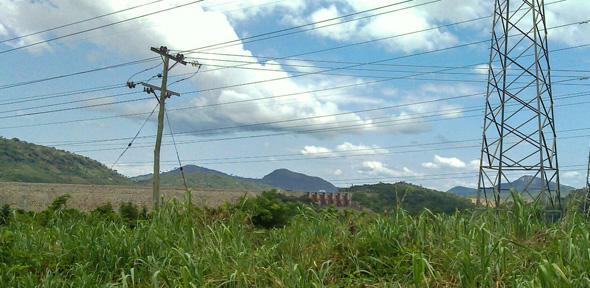
Dr Abu Yaya (Head of the Department of Materials Science and Engineering, University of Ghana) has been working closely with Dr Kevin Knowles (Department of Materials Science & Metallurgy, University of Cambridge) on electroporcelain. Electroporcelain is a small but crucial component for power transmission, and Dr Yaya aims to use it in order to develop a home-grown industry back in Ghana, to reduce it's frequent blackouts.
Power transmission from the places where it is generated, such as the Akosombo Dam (Ghana), to homes and businesses, requires a well-established electrical grid made up of pylons, substations and transmission lines. Whereas high-voltage power lines are insulated by the surrounding air, a physical insulator is required at the point where the power lines are supported by utility poles or transmission towers, or where power lines enter buildings. These insulators prevent the loss of current and concentrate its flow, as well as help prevent electric shock.
Most insulators for high-voltage power transmission are made from glass or porcelain. However, despite the prevalence of raw materials to make electroporcelain in Ghana, electroporcelain ceramics are imported from other countries at great expense. Dr Yaya, who has now developed a method of making electrical insulators out of the materials available in Ghana. His aim is to scale up the process for commercial use in the country, and possibly to other sub-Saharan countries as well. The process is economical because all it needs is the raw materials, water and a furnace.
Dr Yaya's research with Dr Kevin Knowles was funded by the Cambridge-Africa Partnership for Research Excellence (CAPREx) and The ALBORADA Trust, through the Cambridge-Africa Programme.
Click here to read the full article.
Image credit: jbdodane

